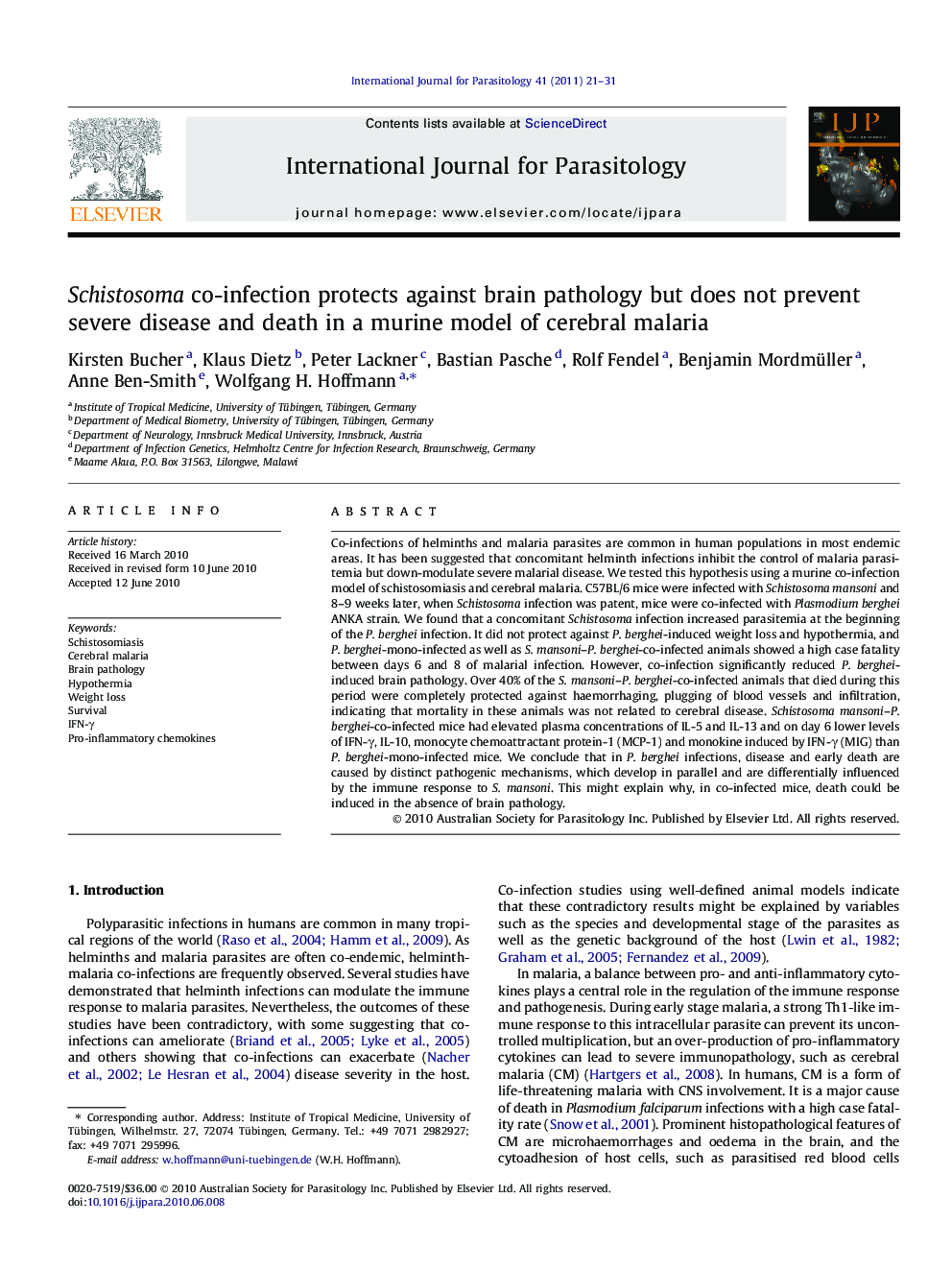| Article ID | Journal | Published Year | Pages | File Type |
|---|---|---|---|---|
| 2436275 | International Journal for Parasitology | 2011 | 11 Pages |
Co-infections of helminths and malaria parasites are common in human populations in most endemic areas. It has been suggested that concomitant helminth infections inhibit the control of malaria parasitemia but down-modulate severe malarial disease. We tested this hypothesis using a murine co-infection model of schistosomiasis and cerebral malaria. C57BL/6 mice were infected with Schistosoma mansoni and 8–9 weeks later, when Schistosoma infection was patent, mice were co-infected with Plasmodium berghei ANKA strain. We found that a concomitant Schistosoma infection increased parasitemia at the beginning of the P. berghei infection. It did not protect against P. berghei-induced weight loss and hypothermia, and P. berghei-mono-infected as well as S. mansoni–P. berghei-co-infected animals showed a high case fatality between days 6 and 8 of malarial infection. However, co-infection significantly reduced P. berghei-induced brain pathology. Over 40% of the S. mansoni–P. berghei-co-infected animals that died during this period were completely protected against haemorrhaging, plugging of blood vessels and infiltration, indicating that mortality in these animals was not related to cerebral disease. Schistosoma mansoni–P. berghei-co-infected mice had elevated plasma concentrations of IL-5 and IL-13 and on day 6 lower levels of IFN-γ, IL-10, monocyte chemoattractant protein-1 (MCP-1) and monokine induced by IFN-γ (MIG) than P. berghei-mono-infected mice. We conclude that in P. berghei infections, disease and early death are caused by distinct pathogenic mechanisms, which develop in parallel and are differentially influenced by the immune response to S. mansoni. This might explain why, in co-infected mice, death could be induced in the absence of brain pathology.
Graphical abstractCoinfection with S. mansoni does not prevent P. berghei-induced early death. Coinfection with S. mansoni protects against CM-associated brain histopathology.Figure optionsDownload full-size imageDownload high-quality image (110 K)Download as PowerPoint slideResearch highlights► We examine co-infections of helminths and malaria parasites in C57BL/6 mice. ► Schistosoma mansoni reduces Plasmodium berghei-induced brain pathology. ► Proinflammatory cytokines and chemokines are diminished in co-infected animals. ► However, co-infected animals die in the same rate as P. berghei-mono-infected mice. ► Cerebral pathology is not the sole cause of death in P. berghei-infected mice.
